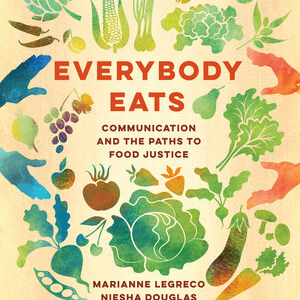
This book uses case studies of food justice activism to argue that communication is vital for incorporating social justice into food systems and for providing food security.
Publisher’s summary
Everybody Eats tells the story of food justice in Greensboro, North Carolina—a midsize city in the southern United States. The city's residents found themselves in the middle of conversations about food insecurity and justice when they reached the top of the Food Research and Action Center's list of major cities experiencing food hardship. Greensboro's local food communities chose to confront these high rates of food insecurity by engaging neighborhood voices, mobilising creative resources at the community level, and sustaining conversations across the local food system. Within three years of reaching the peak of FRAC's list, Greensboro saw an 8 percent drop in its food hardship rate and moved from first to fourteenth in FRAC's list. Using eight case studies of food justice activism, from urban farms to mobile farmers markets, shared kitchens to food policy councils, Everybody Eats highlights the importance of communication—and communicating social justice specifically—in building the kinds of infrastructure needed to create secure and just food systems.
Reference
LeGreco, M. and Douglas, N. (2021). Everybody Eats: Communication and the Paths to Food Justice. University of California Press, Oakland.
Read more here. See also the TABLE explainer What is food security?







Post a new comment »